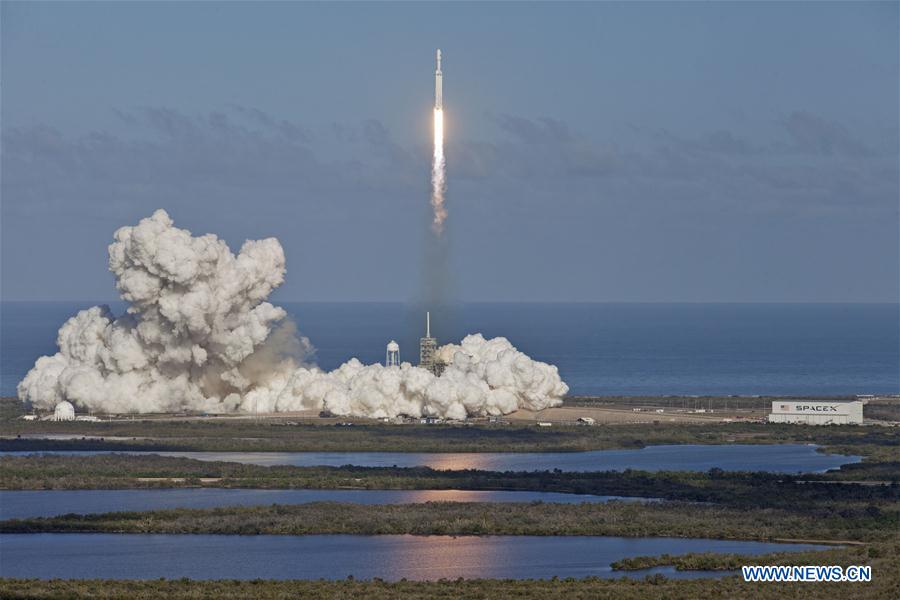
A SpaceX Falcon Heavy rocket lifts off from Florida's Kennedy Space Center, the United States, Feb. 6, 2018. The Falcon Heavy blasted off from the Kennedy Space Center in the U.S. State of Florida at 3:45 p.m. EST (2145 GMT), carrying something just for fun: a red Tesla Roadster belonging to SpaceX and Tesla founder Elon Musk. (Xinhua/NASA)
SAN FRANCISCO, Feb. 6 (Xinhua) -- The successful test flight of Falcon Heavy, the super rocket manufactured by U.S. space flight company SpaceX, could revolutionize the space industry one day.
The most powerful operational rocket in the world took off Tuesday from Cape Canaveral, home to the Kennedy Space Center in Florida, which had seen history made almost half a century ago when the same launch pad sent the U.S. Apollo 11 spacecraft with two American astronauts to the moon for the first time.
The launch of Falcon Heavy marks a milestone in spaceflight. It's the first time that a powerful rocket was sent into space by a private company. SpaceX was established by billionaire Elon Musk, who is also co-founder and chief executive of U.S. electric car giant Tesla.
Falcon Heavy can lift into orbit nearly 64 metric tons -- a mass greater than a Boeing 737 jetliner loaded with passengers, crew, luggage and fuel.
It means the super rocket can lift more than twice the payload of its closest operational vehicle, the Delta IV Heavy, at one-third the cost.
However, instead of carrying a heavy payload Tuesday, it took off with a cherry red Tesla Roadster sports car used by Musk, with a dummy spacesuit-clad passenger dubbed "Starman", in an apparent reference to singer David Bowie's hit number Space Oddity.
The launch aimed to test the reliability of Falcon Heavy's 27 kerosene engines, which are triple the number of engines the company's older rocket Falcon 9 has. Falcon 9 has been used for years to send satellites and supplies to the International Space Station.
Falcon Heavy has a more ambitious mission -- to hoist super-big satellites and cargo to far more distant points such as Mars.
Tuesday's success takes Musk one step forward to realizing his dream of sending humans to Mars on larger rockets.
It will also place SpaceX in a much more advantageous position to vie for contracts to launch larger satellites from the U.S. government and other international clients.

















